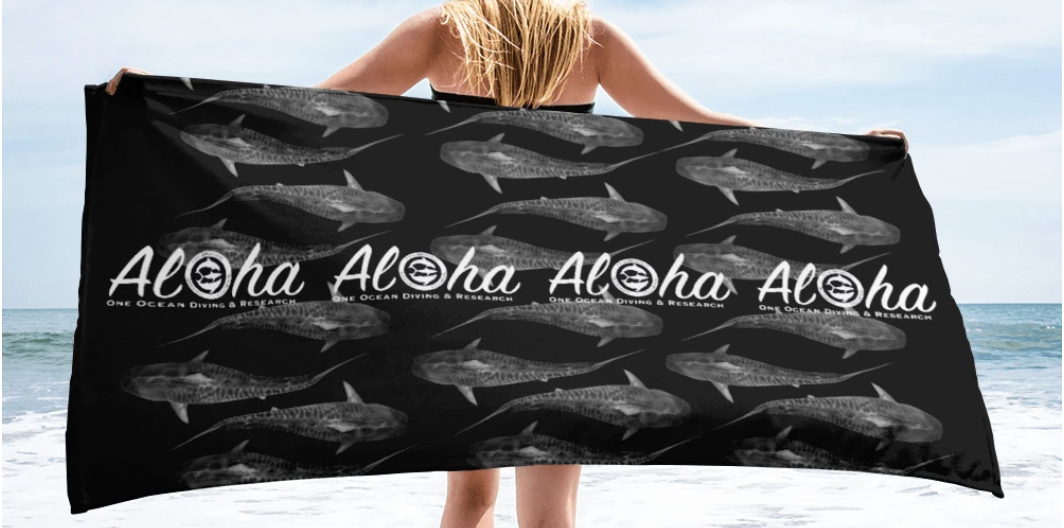One Ocean Research
Founded as a research program, One Ocean Diving has a number of different research studies currently in progress! Take a look below at some of the research One Ocean Diving is involved in!
Click any of the links above to learn more about the sharks in our ID database!
Click the Button above or the image to the right for a downloaded PDF of a report written by one of our research assistants on the migration and presence of Whale Sharks within the Hawaiian archipelago.
SHARK RESEARCH
Our ongoing correlation studies look at shark movements by species, gender, depth profile, and season. Baseline information for individual animals is recorded, and new sharks are added to our ID program. The Shark ID program significantly reduces the need for tagging to determine site fidelity and assists in accuracy of survey counts. Deep water camera systems (up to 500 feet) are deployed to study shark movements at every depth at survey sites.
Follow us on instagram @oneoceandiving @oneoceanresearch and @oneoceansharks to keep up on our research efforts and to learn more about sharks! Click the "CURRENT AND ONGOING PROJECTS" button to learn about our mission statement and ongoing and collaborative research projects!
HAWAII SHARK COUNTER
Want to contribute to our shark ID database? Send us photos, the time and place of sighting off Hawaiian waters!
HAWAIIAN GREEN SEA TURTLE
We have just recently introduced our Honu Program and are excited to begin our studies on the effects human impacts have on the success and health of the green sea turtle. Just like the shark program we have a Honu ID program that relies on a photo database in order to get a baseline of the population. We utilize photos instead of tagging to reduce the amount of stress placed upon the animal. We take photos of the left, right and top profile of the turtle's head and note any distinct markings and the shape and placement of the facial scales.
Our main focus is on entanglement issues and the Fibropapillomatosis virus that is highly common among Green sea turtles. When we come upon an entangled sea turtle we take note of the type of gear, location, types of injuries, appearance and state of the sea turtle, photo ID and efforts to remove the gear off the sea turtle. Our goal is to better understand what types of gear more highly affect sea turtle health.
Fibropapillomatosis is a virus that is specific to sea turtles and it involves the growth of tumors, usually on the eyes, nose and mouth area. We are studying the onset and potential seasonality and distribution of the virus among sea turtles along Oahu's coast.
Our hope is to use the data we have collected to better protect our endangered Hawaiian Green Sea Turtle.
HUMPBACK WHALES
Our current Humpback whale research looks at tail fluke ID for all individuals. We also record the sex (male or female), age (adult or calf), and pod/pair relationships. The data we collect we will share with other whale research groups to add to their data set.





